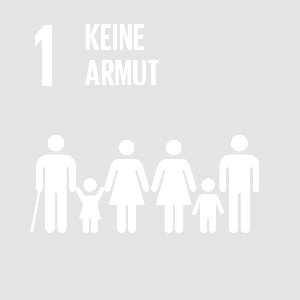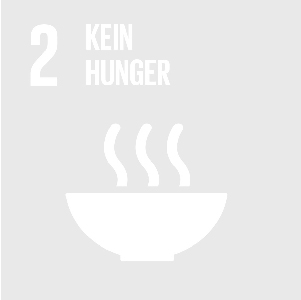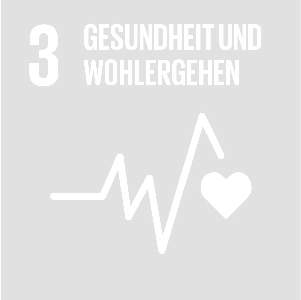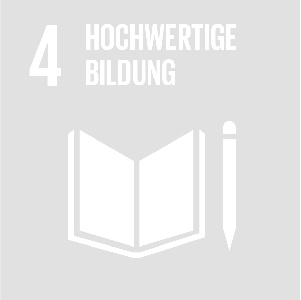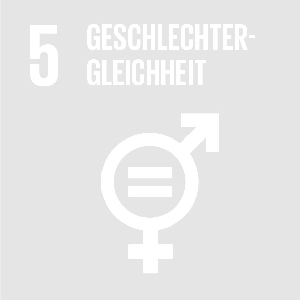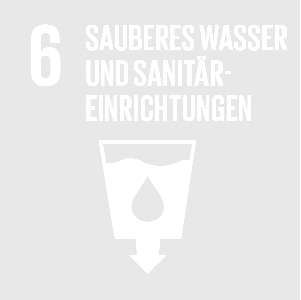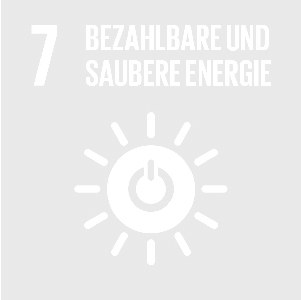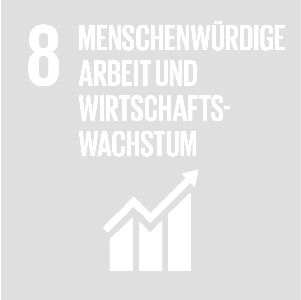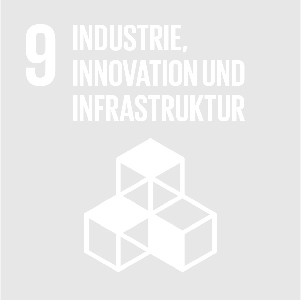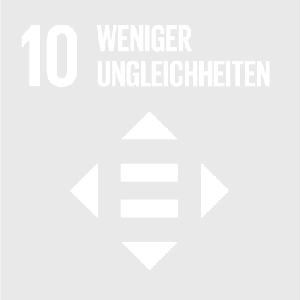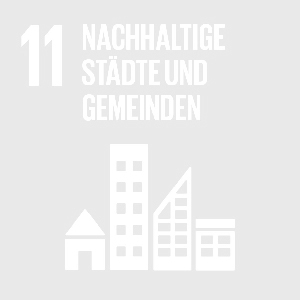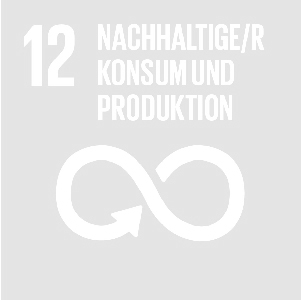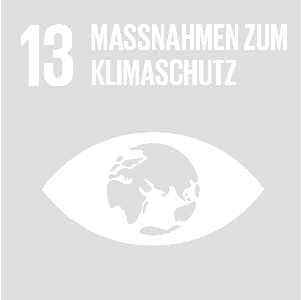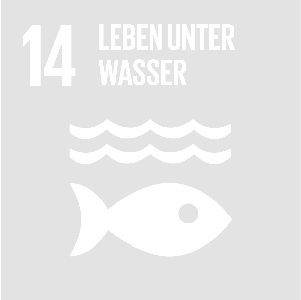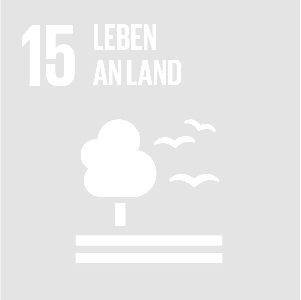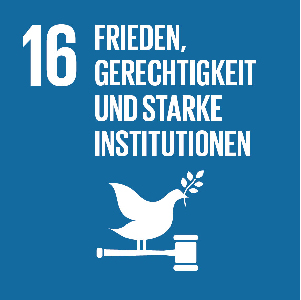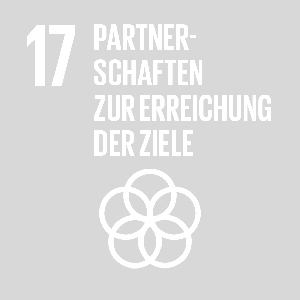Strategische Einbindung von Corporate Responsibility 2020
Breadcrumb
Strategische Einbindung von CR
Verschachtelte Anwendungen
Strategische Einbindung von Corporate Responsibility
Unser nachhaltiges Handeln im wirtschaftlichen und sozialen Umfeld leitet sich sowohl aus unseren eigenen Zielsetzungen, Innovationen und Traditionen als auch von übergreifenden Ansprüchen und gesellschaftlichem Wandel ab.
Märkte werden sich in den nächsten Jahren aufgrund des Klimawandels grundlegend verändern: Menschen und Unternehmen sind bereits heute unter anderem von den Auswirkungen, der Neuorientierung der gesellschaftlichen Ziele und/oder den dazugehörigen Anpassungen der marktwirtschaftlichen Rahmen betroffen. Wir erkennen unsere Verantwortung bei der Wende der Energiesysteme an und wollen unsere Kundschaft darin unterstützen, dem Ziel der Klimaneutralität deutlich näher zu kommen.
Als Familienunternehmen denken und handeln wir langfristig, nehmen unsere soziale Verantwortung gegenüber unseren Mitarbeitenden und der Gesellschaft wahr, und messen uns am nachhaltigen Erfolg.
Bekenntnis zur Nachhaltigkeit des Managements
Bekenntnis zur Nachhaltigkeit des Managements
Wir bekennen uns zur Nachhaltigkeit in unseren Kernfeldern: diese sind nachhaltiges Wirtschaften, unsere Kundschaft und die Märkte, in denen wir tätig sind, Umwelt- und Klimaschutz, Sicherheit, Mitarbeitende und die Gesellschaft.
„Messer ist in wichtigen Märkten der Welt vertreten: Wir achten die kulturellen Unterschiede sowie Rechte in den Regionen, in denen wir tätig sind. Dort tragen wir durch vielfältige Unterstützung zum Gemein- und Bildungswesen bei. Gegenseitiges Vertrauen und Respekt gegenüber der Vielfalt der Menschen, offene Kommunikation in der Zusammenarbeit und die Entwicklung unserer Mitarbeitenden sind feste Werte, die die unumstößliche Basis in unserem Umgang miteinander bilden.
Wir verpflichten uns zum nachhaltigen Wirtschaften und bewahren unter anderem durch vorausschauende Investitionen unsere Eigenständigkeit und Unabhängigkeit. Damit geben wir unseren Mitarbeitenden, Geschäfts- und Finanzpartnerinnen und -partnern langfristig Sicherheit in der Zusammenarbeit.
Wir tragen zum Schutz der Umwelt und des Klimas bei, indem wir unsere Prozesse stetig verbessern und uns außerdem in der Entwicklung auf Technologien fokussieren, die die Produktionsabläufe bei unserer Kundschaft effizienter und umweltschonender machen.
Dabei steht die Sicherheit unserer Kundschaft, Mitarbeitenden und Partnerunternehmen sowie der von uns installierten Anlagen und unserer Vertriebsmittel im Fokus unserer Aktivitäten.
Das stetige Streben nach nachhaltiger Verbesserung der Effizienz unserer Anlagen und Logistikprozesse und die damit verbundene Ressourcenschonung sind ebenso Teil unseres Markenkerns wie die zuverlässige Produktversorgung zu fairen Preisen und das partnerschaftlich geprägte Verhältnis zu unserer Kundschaft.
Gegenüber unseren Stakeholdern agieren wir mit größtmöglicher Transparenz. Corporate Responsibility betrachten wir als unternehmerische Verantwortung mit strategischem Nutzen, indem wir definierte Kennzahlen zur Steuerung zugrunde legen, es in unsere Managementorganisation implementiert haben und uns in der Nachhaltigkeits-Berichterstattung am GRI (Global Reporting Initiative)-Standard orientieren. Wir richten uns nach einem festgelegten Kodex zur Zusammenarbeit und unserem Verhalten gegenüber all unseren Stakeholdern. Die Einhaltung aller einschlägigen Gesetze und Verordnungen sind für uns weltweit ebenso selbstverständlich wie der Schutz der persönlichen Daten unserer Mitarbeitenden und Geschäftspartnerinnen und -partner.
Der Erfolg unseres Unternehmens beruht in erheblichem Maße auf der Loyalität unserer Mitarbeitenden. Wir bekennen uns zur Weltoffenheit, Vielfalt, Toleranz und zum Respekt gegenüber kultureller Unterschiede – und dies uneingeschränkt und ohne Ausnahmen. Intoleranz, Rassismus oder Sexismus stehen in absolutem Widerspruch mit den Werten unseres Unternehmens. Für jeden – egal welcher Nationalität, Religionszugehörigkeit, Ethnizität oder sexueller Orientierung – bietet unsere Kultur Platz, um sich frei und chancengleich zu entwickeln. Vielfalt bedeutet Bereicherung.“
|
|
|
|
|
|
|
|
Erstellung unserer Wesentlichkeitsanalyse
Die wesentlichen Themen unseres strategischen Nachhaltigkeitsprozesses werden durch die täglichen und langfristigen Aktivitäten von Messer definiert und orientieren sich an den 17 Nachhaltigkeitszielen der Vereinten Nationen. Bei der Bewertung dieser Themen ist es uns wichtig, Vertreterinnen und Vertreter aller Stakeholder einzubeziehen. Aus diesem Grund haben wir eine transparente Liste von 16 Kernthemen erstellt, die durch 45 Führungskräfte und 771 Mitarbeitende freiwillig über eine anonyme Online-Befragung bewertet wurden. Auch ausgewählte Journalistinnen und Journalisten, unsere Kundschaft sowie Follower unserer Social-Media-Kanäle haben anonym an der Online-Umfrage teilgenommen. Wie bereits in den Jahren zuvor sind die Themen aus dem Bereich Sicherheit von höchster Wichtigkeit für unser Unternehmen. Alle wesentlichen Themen können durch unsere Entscheidungen beeinflusst werden und haben auch auf Anspruchsgruppen außerhalb der Organisation sowie auf die 17 UN-Nachhaltigkeitsziele potenzielle Auswirkungen. Daher sind alle wesentlichen Projekte sowohl innerhalb als auch außerhalb der Organisation relevant. Die Zuordnung unserer Kernthemen zu den UN-Nachhaltigkeitszielen wird durch die Farbgebung transparent.
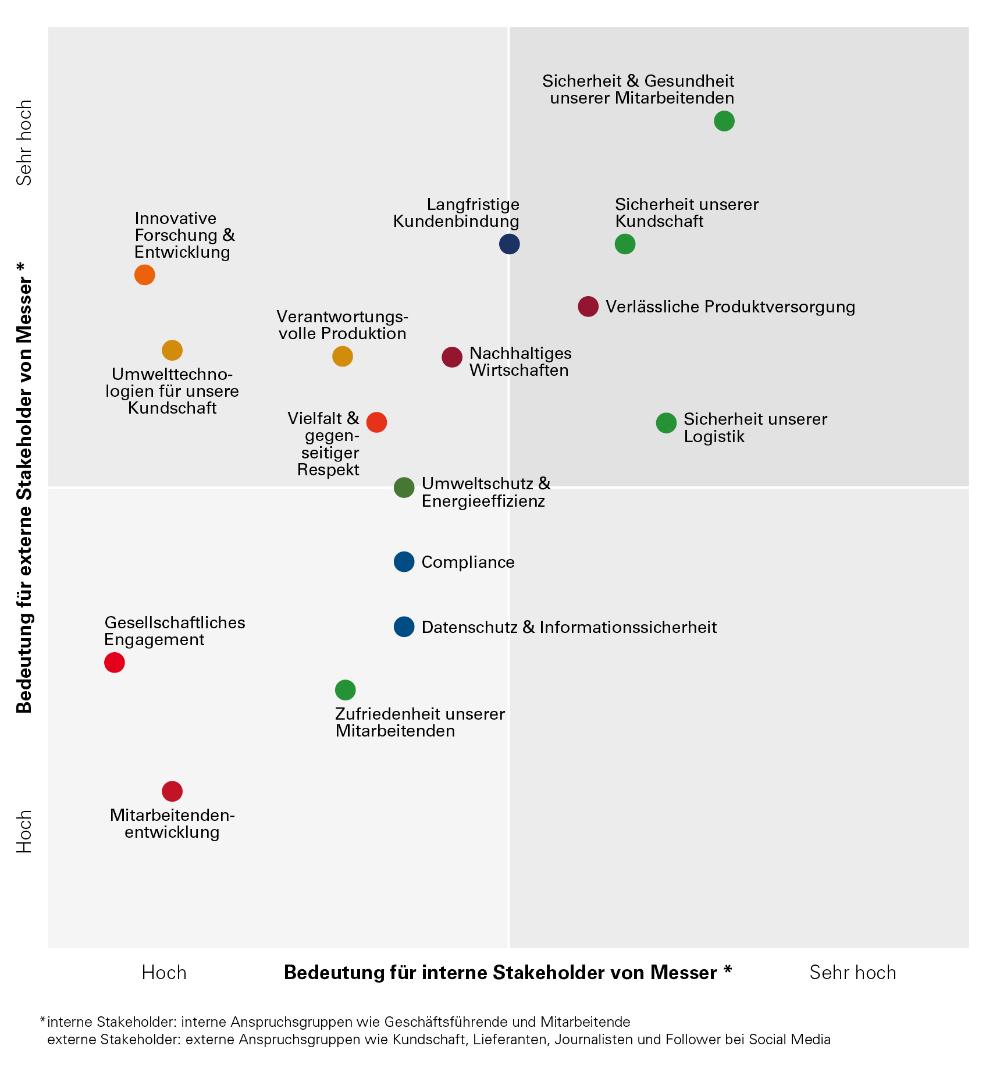
Einverständnis unter internen und externen Stakeholder besteht weiterhin darin, dass wir unseren größten sozialen Beitrag in vier Themenbereichen leisten können:
- Sicherheit und Gesundheit: Wir verpflichten uns dem Schutz unserer Mitarbeitenden, Geschäftspartnerinnen und Geschäftspartnern sowie Kundinnen und Kunden sowie größtmöglicher Sicherheit bei Herstellung, Transport, Nutzung und Behandlung unserer Produkte.
- Energieeffizienz und Umwelt: Wir achten auf den Schutz der Umwelt und den verantwortlichen Umgang mit Ressourcen in unseren eigenen Prozessen sowie in denen unserer Kundschaft.
- Vielfalt und Chancengleichheit: Wir bauen unsere Firmenkultur und unsere unternehmerischen Stärken auf gegenseitiges Vertrauen und Respekt.
- Kundenzufriedenheit: Wir helfen unseren Kundinnen und Kunden, ihre Leistungsfähigkeit sowohl wirtschaftlich als sozial zu stärken.
Darauf fokussieren wir unsere Arbeitsressourcen im Rahmen kontinuierlicher Verbesserungsprozesse.
Die Verantwortung des Unternehmens
Im Leitbild von Messer sind Kunden- und Mitarbeitendenorientierung, verantwortliches Handeln, unternehmerische Verantwortung sowie offene Kommunikation, Vertrauen und Respekt verankert. Um diese Werte und die Entwicklungen im Bereich des nachhaltigen Handelns messbar und vergleichbar zu machen, hat Messer im Jahr 2014 erstmals Key Performance Indicators (KPI) für Nachhaltigkeit eingeführt.
Wir haben uns in den unterschiedlichen Geschäftsbereichen messbare Ziele gesetzt, um unsere Verbesserungen und Entwicklung zu dokumentieren. Diese Ziele veröffentlichen wir in dem vorliegenden Nachhaltigkeitsbericht des Geschäftsjahres 2020. In diesem Jahr veröffentlichen wir erstmalig harmonisierte Key Performance Indicators in Bezug auf Nachhaltigkeit, die beide Unternehmensgruppen, Messer Group und Messer Industries, abbilden. Dies bekräftigt unsere gemeinsame Zielsetzung, führt im vorliegenden Nachhaltigkeitsbericht allerdings dazu, dass nicht in allen Fällen eine Vergleichbarkeit mit dem Vorjahr möglich ist.
Dieser Bericht basiert auf den UN-Nachhaltigkeitszielen und orientiert sich an den G4-Richtlinien der Global Reporting Initiative (GRI). Auf Wunsch unserer Kundschaft berichten wir auch an beauftragte Dritte, zum Beispiel EcoVadis, das „Carbon Disclosure Project“ und an die weltweite Initiative „Responsible Care“ der chemischen Industrie.
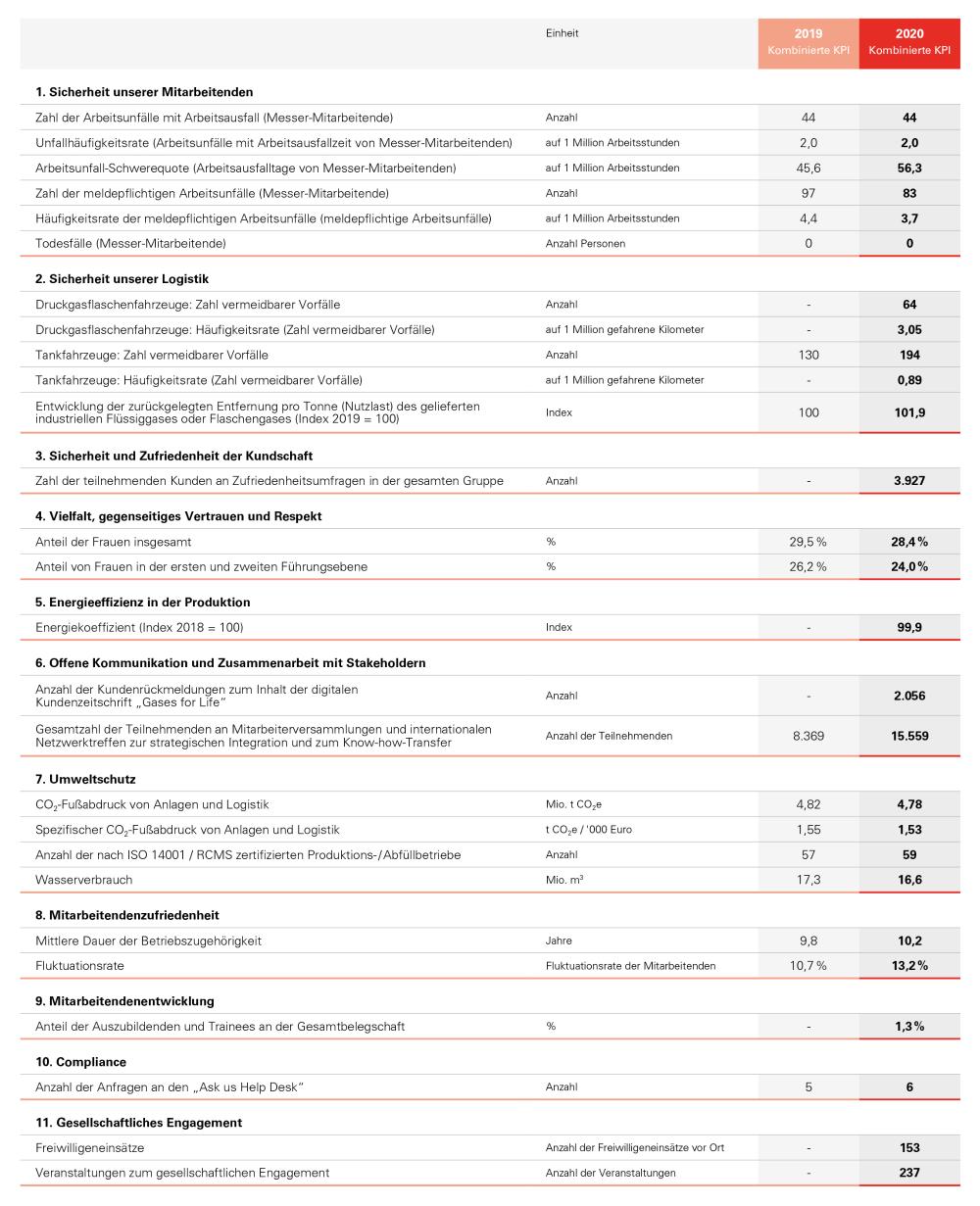
Unternehmerische Verantwortung
Messer Compliance Management System
Das Messer Compliance Management System (Messer CMS) betont unser nachhaltiges Werteverständnis. Es stellt einen verbindlichen Handlungsrahmen zur Bewältigung von Interessenkonflikten und zur Einhaltung von geltenden Gesetzen, regulatorischen Vorschriften und die über- bzw. innerbetrieblichen Regelwerke in allen Geschäftsbereichen von Messer dar. Das Messer CMS wird von einem klaren Bekenntnis der Geschäftsführer und Führungskräfte getragen. Als Wertesystem dient es dem Ziel, ein von Fairness, Solidarität und Vertrauen getragenes Verhältnis zu unseren internen und externen Stakeholdern zu schaffen. Es unterstützt die Verantwortlichen bei der Einrichtung und Umsetzung und soll zudem Verstöße gegen den Messer-Kodex möglichst schon im Vorfeld verhindern.
Messer Americas schließt sich dem Verhaltenskodex an und richtet sich außerdem nach einem eigenen Kodexzusatz sowie einem Verhaltenskodex für Lieferanten. Zu den weiteren Richtlinien gehören ein Leitfaden zur Einhaltung des Wettbewerbsrechts, ein Leitfaden zur Antikorruption (mit dazugehörigem Genehmigungsformular), ein Compliance Guide für Geschäftspartnerinnen und -partner (mit Checkliste zur Sorgfaltspflicht und einer Mustervereinbarung) sowie eine Datenschutzrichtlinie für Nordamerika. Diese Richtlinien sind auf der Intranetseite „Legal and Compliance“ von Messer Americas verfügbar.
Compliance-Verstöße und begründete Verdachtsfälle
Die Geschäftsführerinnen und Geschäftsführer sowie Führungskräfte organisieren ihren Verantwortungsbereich dergestalt, dass ihnen Berichte der Mitarbeitenden über die Verletzung von geltendem Recht oder des Messer-Kodex („Compliance-Verstöße“) sowie begründete Verdachtsfälle jederzeit zugehen können, um eine umgehende Abhilfe sicherzustellen. 2020 gab es bei Messer sechs Meldungen bei den entsprechenden Hotlines.
Neue Handbücher für Pflanzenschutzmittel und Pharmaline-Gase
Die Geschäftsleitung von Messer Group hat innerhalb des Compliance Management Systems im Jahr 2020 Neufassungen der Handbücher für Pflanzenschutzmittel und Pharmaline-Gase verabschiedet. Das Handbuch für Pflanzenschutzmittel enthält erweiterte Richtlinien zu Verpflichtungen nach dem Pflanzenschutzmittelrecht für europäische Gesellschaften über Einkauf von Materialien und Produkten, Produktion, Qualitätskontrolle, Freigabe, Lagerung und Vertrieb von Pflanzenschutzmitteln sowie der damit verbundenen Kontrollen. Das Handbuch für Pharmaline-Gase beinhaltet erweiterte Richtlinien für europäische Gesellschaften zu Verpflichtungen nach dem Arzneimittelrecht und Anforderungen der Pharmazie-Kundschaft sowie an Pharmaline-Gase.
Datensicherheit
Bei Messer Group GmbH ist der Group IT Security Officer für die Koordination von Sicherheitsmaßnahmen über die einzelnen Gesellschaften hinweg, das Schaffen von Standards und den Aufbau von entsprechendem Know-how verantwortlich. Mit IT-Security unterstützen wir die Nachhaltigkeit unserer Digitalisierung, die physische Sicherheit unserer Informationen und die für unsere Geschäftsprozesse wichtige Handlungsfähigkeit durch die vital notwendige Verfügbarkeit unserer Systeme. Ausgearbeitet werden die IT-Security-Services von einem international besetzten IT-Security-Team.
In dem laufenden Berichtsjahr wurde ein Vertrag über das Outsourcing des überwiegenden Teils der bisher im Messer Information Services-Rechenzentrum in Groß-Umstadt, Deutschland, betriebenen Applikationen geschlossen. Ziel der Zusammenarbeit ist die strategische und technische Neuausrichtung der Messer Group IT-Infrastruktur an jeweils aktuellen, global etablierten Standards, um die IT-Infrastruktur leistungsfähiger, stabiler und sicherer zu machen und damit wesentliche Voraussetzungen für weitere Effizienz- und Prozessverbesserungen zu schaffen.
Mit der Umsetzung des Projekts werden einheitlich hohe Sicherheitsstandards implementiert. Zwischen Dezember 2020 und voraussichtlich Juni 2021 sollen alle 110 Standorte von Messer Group und Messer Industries in Westeuropa an das IBM-Rechenzentrum angebunden werden. Die heute sehr uneinheitliche sicherheitsrelevante Infrastruktur an den Standorten wird standardisiert und durch ein Expertenteam des Outsourcing-Partners einheitlich zentral verwaltet.
Bei Messer Americas ist die Bewertung des Cybersicherheitsrisikos in das gesamte Risikomanagementprogramm des Unternehmens eingebettet. Dazu gehören regelmäßige Audits und Überprüfungen durch Dritte, um die allgemeine Cybersicherheitslage und die Erfüllung der Roadmap zu bewerten. Das Executive Committee von Messer Americas wird das ganze Jahr über durch regelmäßige Updates zum aktuellen Stand der Cybersicherheit von der Geschäftsleitung, einschließlich des CIO und des Bereichs Information Services, informiert. Dadurch werden die Roadmap und die erforderliche Finanzierung für zusätzliche Tools und Ressourcen genehmigt.
Messer Americas führt bei der Informationstechnologie regelmäßige Kontrollen durch, um sich vor Cybersecurity-Angriffen und -Bedrohungen zu schützen. Dies umfasst Endgeräte, Server, Anwendungen und Daten sowie Cloud-Plattformen, die regelmäßig von Mitgliedern der Infrastruktur- und Sicherheitsorganisation überwacht werden, um eine schnelle Reaktion auf Angriffe, Schwachstellen oder aufkommende Bedrohungen zu gewährleisten. Es gibt bei Messer Americas IT-Sicherheitsrichtlinien und -Verfahren, die sicherstellen sollen, dass die Infrastruktur, der Zugang und die Daten angemessen kontrolliert und verwaltet werden.
Die Sensibilisierung und Schulung der Mitarbeitenden ist ein wichtiger Aspekt von Messer Americas Cybersicherheitsprogramm. Dies wird durch eine Kombination aus Schulung, Kommunikation und Nutzung von Online-Tools erreicht, die Social-Engineering-Konzepte nutzen, um das Bewusstsein der Mitarbeitenden und die potenzielle Anfälligkeit für Bedrohungen und Angriffe zu bewerten (z. B. Phishing, Kompromittierung von Geschäfts-E-Mails usw.).
Datenschutz
Messer sieht sich zur Einhaltung der geltenden Datenschutzvorschriften verpflichtet. Um dieser Verpflichtung Nachdruck zu verleihen, sind entsprechende Strukturen darauf ausgerichtet, dauerhaft ein hohes Maß an Datenschutz zu gewährleisten.
Der Group Privacy Officer von Messer Group GmbH verantwortet dabei die Koordination des Zentralbereichs Datenschutz und steuert begleitend die Umsetzung des Datenschutzes durch die Landesgesellschaften. Im Rahmen der EU-Datenschutz-Grundverordnung (DSGVO) und des deutschen Bundesdatenschutzgesetzes (BDSG) gehen wir mit den Daten unserer Mitarbeitenden, Kundschaft und Geschäftspartner rechtskonform um. Darüber hinaus setzten wir die datenschutzrechtlich vorgegebenen Maßnahmen zur Organisation und Dokumentation um. Die europäischen Landesgesellschaften von Messer sowie die Messer Group GmbH kommunizieren darüber hinaus ihre Datenschutzhinweise in der jeweiligen Landessprache über ihre Webseiten.
Messer Americas hält sich an die geltenden Datenschutzgesetze. Der Datenschutz wird sowohl im Verhaltenskodex der Messer Group für Amerika als auch in der Kodexergänzung von Messer Americas behandelt. Darüber hinaus hat Messer Americas eine eigenständige Datenschutzrichtlinie für Nordamerika verabschiedet, die auf der Compliance-Webseite des nordamerikanischen Intranets von Messer Americas verfügbar ist. Sowohl der Senior Counsel & Regional Compliance Officer von Messer Americas als auch der Head of Human Resources for North America Business Operations sind als Ansprechpersonen für Fragen und Datenschutzthemen angegeben. Mitglieder des Rechts- und Compliance-Teams von Messer Americas stehen ebenfalls in ganz Amerika zur Verfügung, um Fragen und Bedenken zum Datenschutz zu beantworten. Messer Americas greift auch auf externe Rechtsberatende zurück, die bei Bedarf in Compliance-Fragen beraten, insbesondere in Südamerika. Schulungen zum Datenschutz sind im E-Learning-Kurs von Messer Americas zum Ethik- und Verhaltenskodex enthalten, der ein Modul zum Datenschutz enthält. Der E-Learning-Kurs "Ethik- und Verhaltenskodex" ist für alle Mitarbeitenden von Messer Americas verpflichtend.
Nachhaltige, dokumentierte Lieferkette
Eine nachhaltige Lieferkette ist eine der Grundlagen für den wirtschaftlichen Erfolg von Messer.
Eine entscheidende Rolle spielen hierbei die Beziehungen zwischen Messer und seinen wichtigsten Lieferanten (Key Supplier), die von den Abteilungen Logistics / Sourcing und Engineering / Produktion der Messer Group GmbH jeweils für deren Fachgebiete gepflegt werden. Diese Abteilungen übernehmen oder begleiten zentral den europaweiten Einkauf von Logistikdienstleistungen und speziellen Bedarfsgütern, Handelswaren, Anlagen, Maschinen, Transport-Equipment sowie von Behältern. Sie sind beide nach ISO 9001 zertifiziert und haben im Rahmen der Zertifizierungen robuste und nachhaltige Qualitätsmanagementsysteme aufgebaut. Wiederkehrende Lieferantenaudits der Key Supplier sind ein wichtiger Bestandteil der Beurteilung der Lieferanten.
Die Abteilung Produktion unterstützt die Messer-Landesgesellschaften beim Betrieb und der Instandhaltung der bestehenden Produktionsanlagen (Störungsbeseitigungen, Instandhaltungsplanung, Know-how-Transfer / Schulungen, Standardisierungen) mit dem Ziel, die Produktionsprozesse zu optimieren. Durch den Einsatz von zentraler computergestützter Überwachung und Steuerung der Anlagen werden die Wirtschaftlichkeit und der CO2-Footprint unserer Werke durch Senkung des Energieverbrauches laufend verbessert. Die in regelmäßigen Prozess- und Energieaudits erarbeiteten Optimierungsmöglichkeiten werden konsequent umgesetzt.
Die Abteilung Engineering ist verantwortlich für technische und beschaffungstechnische Aspekte im Zusammenhang mit der Umsetzung von Projekten zur Erzeugung von Gasen aller Art mit Schwerpunkt Europa. Hierzu zählen die Entwicklung sowie der Bau oder Umbau von Anlagen zur Erzeugung von technischen und medizinischen Gasen. Diese Aufgaben umfassen neben der Anlagenauslegung, dem Projektmanagement und der Bauleitung auch die Beschaffung / den Einkauf aller erforderlichen Anlagenkomponenten bis hin zur Inbetriebnahme. Wichtige Aspekte bei der Auslegung und dem Bau neuer Anlagen ist die Einbindung der durch das Betreiben der Anlagen gewonnenen Erkenntnisse und Werte zur Verbesserung der Effizienz der Produktionswerke, sowie der Einsatz von technisch hochwertigen, langlebigen und energieeffizienten Komponenten. Eine kleine Gruppe von Fachleuten beschäftigt sich mit der Weiterentwicklung unserer Prozesse. Wir setzen die aktuellsten Programme und Software-Tools zur Prozessauslegung zur laufenden Weiterentwicklung ein.
Die Abteilung Logistics / Sourcing zusammen mit Messer GasPack stellt für Messer und deren Kundschaft die Verfügbarkeit von Produkten (Gase jeglicher Art) und deren Transport sicher. Hierzu gehören auch die Entwicklung neuer Logistikkonzepte, das Roll-out und der Betrieb von Optimierungs- und Kontrolltools. Darüber hinaus wird durch die Abteilung der europaweite Einkauf von Tankwagen, stationären Kundenbehältern und Verdampfern, der Einkauf, die Vermietung und die wiederkehrende Prüfung von Druckgefäßen und Armaturen, der Einkauf von elektrischem Strom für die Produktionsanlagen und der Einkauf von Gasen von Drittquellen durchgeführt bzw. koordiniert. Zudem unterstützt Logistics / Sourcing die Landesgesellschaften bei dem Management von Beförderungsverträgen und der Organisation von Schwertransporten. Durch die zentrale Bearbeitung dieser Fachgebiete können zum einen wirtschaftliche Vorteile erzielt werden, zum anderen werden flächendeckend hohe und einheitliche Qualitätsstandards realisiert.
Im Jahr 2020 wurde aufgrund der Covid-19-Pandemie die Durchführung von Lieferantenaudits stark eingeschränkt. Alle ausstehenden Audits werden nachgeholt, sobald es die Situation wieder zulässt.
Bei den Audits liegt das Hauptaugenmerk vor allem auf dem Produktionsprozess, der Qualität der hergestellten Produkte und der Nachhaltigkeit. Seit 2018 wird ebenso die Einhaltung der Prinzipien des UN Global Compact bei Schlüssellieferanten gefordert, wodurch ein weiterer Fokus auf Nachhaltigkeit, aber unter anderem auch auf Menschenrechte, Umweltbewusstsein und Arbeitsbedingungen gelegt wird. Im Falle einer nicht zufriedenstellenden Bewertung werden gemeinsam mit dem Lieferanten Maßnahmen zur Verbesserung der Leistung erarbeitet. Kritische Abweichungen führen zu einer Ablehnung des Lieferanten.
Seitens Messer Americas wurden im Jahr 2020 mehr Lieferanten durch das interne Bewertungssystem auditiert. Etwa 28,8 Prozent der Lieferanten erhielten die Bewertung "sehr zufriedenstellend", 57,5 Prozent die Bewertung "zufriedenstellend" und 13,7 Prozent die Bewertung "verbesserungswürdig".
Der Bereich Beschaffung von Messer Americas widmet sich dem Warengruppenmanagement, der strategischen Beschaffung und dem Ausgabenmanagement innerhalb der Beschaffungsorganisation, um Einsparungen zu erzielen und gleichzeitig auf Gesundheit und Sicherheit zu achten. Das Sourcing-Team von Messer Americas ist strategisch auf das Geschäft ausgerichtet und verfügt über Expertise in den Kategorien Indirect, Plants and Production, Merchant Packaged Gas, Customer Engineering Services, Logistik und Anlagevermögen. Das Sourcing-Team von Messer Americas fokussiert sich dabei auf Category Management, Contract Lifecycle Management, Supplier Relationship Management und Compliance. Die Beschaffung ist integrierter Teil unserer Organisation und arbeitet mit dem operativen Team bei allen aktuellen Investitionen zusammen. Das Sourcing-Team von Messer Americas unterliegt der Messer Americas Procurement Policy und den Messer Americas Procurement Guidelines.
Der Bereich Einkauf von Messer Americas unterhält ein Lieferantenmanagement, um die Qualität und die Einhaltung unserer Standards für Betriebsleistung, Sicherheit, Umwelt und soziale Verantwortung zu gewährleisten. Die Lieferanten von Messer müssen unsere Erklärung zum Verhaltenskodex für Lieferanten verpflichtend anerkennen. Zusätzlich misst Messer in den USA die Einhaltung unserer Standards, indem wir die Einhaltung unserer Erklärung zu Konfliktmineralien und unserer Erklärung zur Lieferantenqualität verlangen.
Messer Americas verfügt über ein engagiertes Team von Energie-Expertinnen und -Experten, das den Strom, die größten variablen Kosten von Messer, verwaltet. Das Energieteam arbeitet eng mit dem Betriebsteam zusammen, um den Nutzen und die Effizienz zu maximieren, indem der Stromverbrauch in Zeiten hoher Strompreise oder bei Notfällen im Stromnetz reduziert wird.
In deregulierten Energiemärkten hat das Energieteam eine Strategie zur direkten Strombeschaffung über den Großhandel entwickelt und umgesetzt, die es Messer ermöglicht, Strom direkt von den Energiegroßhandelsmärkten zu beziehen. Das Energieteam nutzt ein Energie-Risikomanagement-Programm, das Messer weniger volatile und sinkende Stromkosten beschert hat. In regulierten Energiemärkten arbeitet das Energieteam eng mit Versorgern, Behörden und anderen Interessensgruppen zusammen, um sicherzustellen, dass Messer gerechte und angemessene Stromtarife erhält, die sich an den Betriebskosten orientieren. Das Energieteam von Messer Americas arbeitet mit lokalen, staatlichen und bundesstaatlichen Behörden zusammen, um Zuschüsse zu erhalten, die die betriebliche Flexibilität und Energieeffizienz der Anlagen von Messer abbilden. Darüber hinaus trägt die Teilnahme von Messer in verschiedenen Industriegruppen dazu bei, die nationale und staatliche Energiepolitik zu aktuellen Themen wie grüne Energie, Nachhaltigkeit, Reaktion auf die Energienachfrage und Widerstandsfähigkeit des Stromnetzes zu gestalten.








